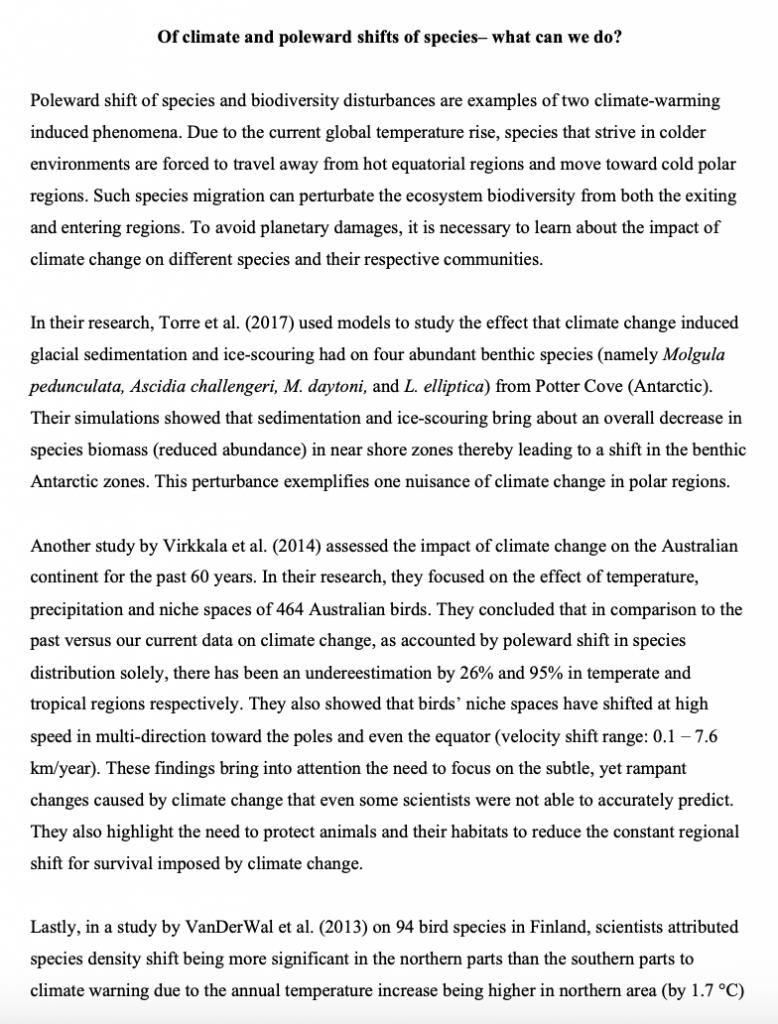BIO2129 Ecology on Effects of Climate Change (Grade A)
Summary:
This text discusses the impact of climate change on species distribution and biodiversity. Due to rising global temperatures, species that thrive in colder environments are forced to migrate from equatorial regions towards polar regions, leading to a poleward shift of species. This migration can disrupt ecosystem biodiversity in both the regions they leave and the regions they enter. The text highlights the importance of studying the impact of climate change on different species and their communities to prevent planetary damage. Several studies are mentioned, including one that examined the effect of glacial sedimentation and ice-scouring on benthic species in the Antarctic, another that assessed the poleward shift of Australian bird species in response to climate change, and a study on bird species density shift in Finland. These studies emphasize the need to protect animals and their habitats to mitigate the effects of climate change. The text also mentions human activities, such as deforestation and reliance on nonrenewable energy sources, as contributors to global warming. It calls for taking serious measures, such as implementing climate change regulations and being mindful of individual carbon footprints, to protect endangered ecosystems. The references provided support for the information presented in the text.
Excerpt:
BIO2129 Ecology on Effects of Climate Change
Of climate and poleward shifts of species– what can we do?
The poleward shift of species and biodiversity disturbances are examples of two climate-warming-induced phenomena. Due to the current global temperature rise, species that strive in colder environments must travel away from hot equatorial regions and move toward cold polar regions. Such species migration can perturbate the ecosystem biodiversity from both the exiting and entering regions. To avoid planetary damage, it is necessary to learn about the impact of climate change on different species and their respective communities.
In their research, Torre et al. (2017) used models to study the effect that climate change-induced glacial sedimentation and ice-scouring had on four abundant benthic species (namely Molgula Pedunculata, Ascidia Challengeri, M. Daytoni, and L. Elliptica) from Potter Cove (Antarctic).


Reviews